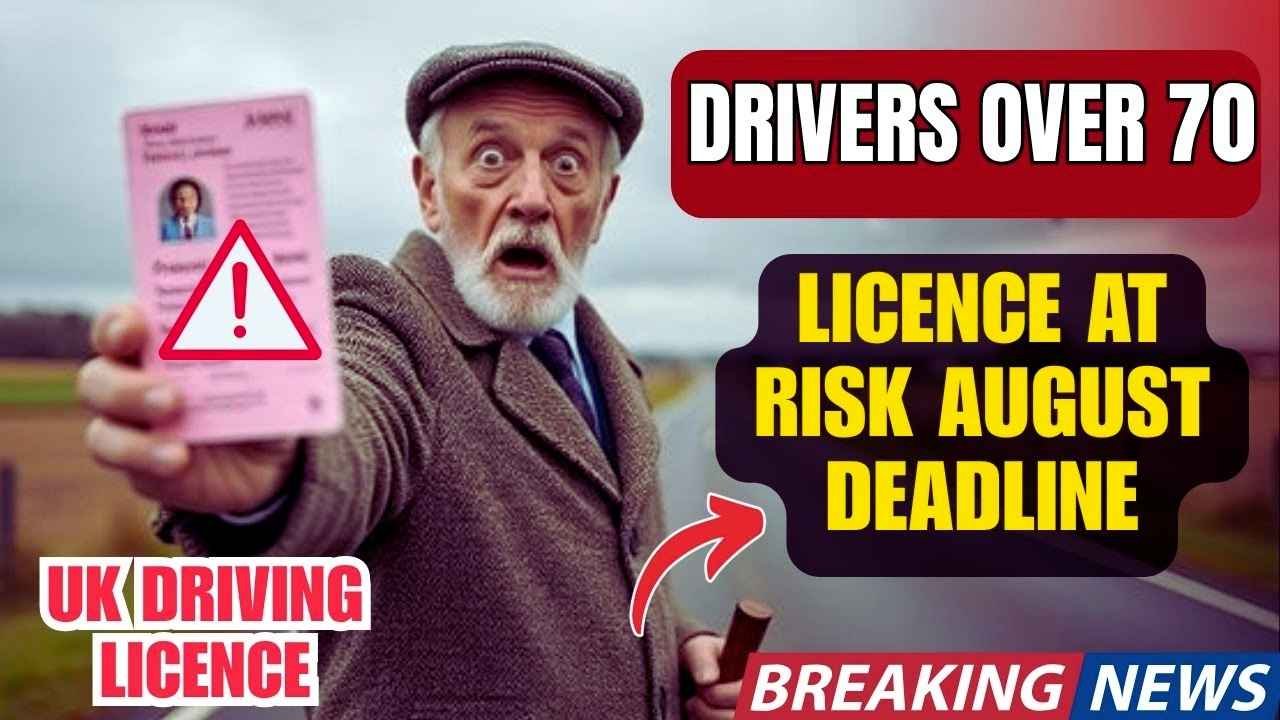In August 2025, the UK government is rolling out plans that could change how older drivers stay on the road. For folks over 70, renewing your driving licence might soon involve a must-pass eye test, or you could face a ban. This comes as part of a bigger push to make roads safer, after years of calls for tougher rules. The ideas are still in talks, but they’re set to be firmed up in the coming months. Health chiefs and road safety groups say it’s about time, pointing to too many crashes linked to poor sight. But some drivers worry it might clip their wings too much, especially in rural spots where cars are a lifeline.
The New Eye Test Rule Explained
At the heart of these changes is a plan to make eye tests compulsory for anyone over 70 when they renew their licence every three years. Right now, you just fill in a form saying your eyes are up to scratch, but that could end. If you fail the test, your licence gets pulled, simple as that. Opticians would have to tell the DVLA if they spot big problems during check-ups. The government reckons this will cut down on accidents caused by bad vision, which has been blamed in some sad cases lately. It’s not just about reading number plates anymore; they want proper checks to catch issues early. No exact start date yet, but whispers say it could kick in by late 2025 or early next year.
Broader Rule Tweaks for All Ages
It’s not only older drivers feeling the pinch. The shake-up includes a few other updates that hit everyone behind the wheel. For starters, the drink-drive limit in England and Wales might drop from 35 micrograms of alcohol per 100ml of breath to 22, matching Scotland. Police could get new roadside saliva tests to nab drug drivers quicker, without needing blood samples. Then there’s seatbelts: forget to buckle up, and you might get points on your licence on top of a fine, which isn’t the case now. Uninsured drivers could face even stiffer punishments, like unlimited fines or longer bans. These aim to tighten up on risky habits across the board.
To break it down, here’s a quick look at the key proposals:
| Rule Change | What It Means | Who It Affects |
|---|---|---|
| Eye Tests | Must pass every 3 years on renewal; fail and lose licence | Over-70s only |
| Drink-Drive Limit | Lower to 22 micrograms per 100ml breath | All drivers in England/Wales |
| Seatbelt Penalties | Add licence points to fines | All drivers |
| Uninsured Driving | Harsher fines and possible disqualification | All drivers |
Why the Government Is Pushing This
Road bosses and ministers like Wes Streeting say these moves are common sense. Last year alone, over 1,600 people died on UK roads, with nearly 28,000 badly hurt, and eyesight plays a part in some of that. The NHS shells out billions fixing crash victims, so safer driving could ease that load. Critics have called the UK’s system too lax compared to Europe, where older drivers often face more checks. Even some Tories back it, saying it’s fair to make sure everyone can see properly. But they stress it’s not about age discrimination; it’s about keeping folks safe, including the drivers themselves. Groups like the RAC welcome the eye tests but want clear guidelines so it’s not a hassle.
What Drivers and Experts Are Saying
Many older drivers get why checks are needed, but they’re not all thrilled. One bloke in his 70s told reporters it’s “basic common sense” to test eyes regularly, while others fret about losing independence. Experts are split too: some push for a max driving age, maybe 80, but the government isn’t going there yet. Instead, they’re eyeing extra medical tests for things like dementia down the line. Road safety charities applaud the plans, but warn that public transport needs beefing up in case more people hang up their keys. Overall, it’s a mix of support and caution, with calls for the rules to be rolled out fairly.
As these proposals head towards a full strategy this autumn, drivers over 70 should keep an eye on updates from the DVLA. If you’re due a renewal soon, it might be worth booking an eye check anyway. The goal is fewer crashes and safer streets, but only time will tell if it works without leaving too many folks stuck at home. For now, the talk is heating up, and August 2025 marks the start of what could be a real shift in how we all drive.
